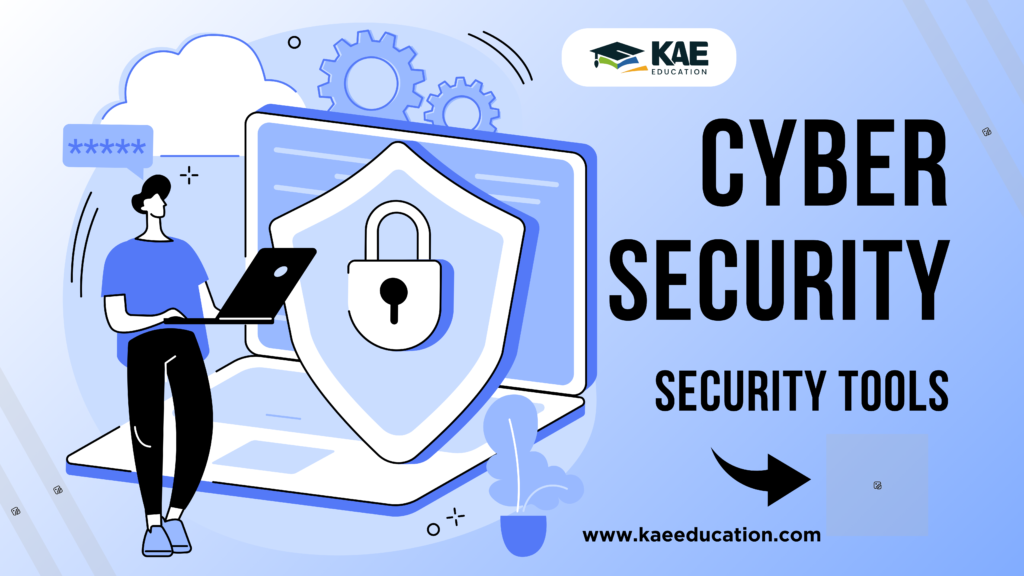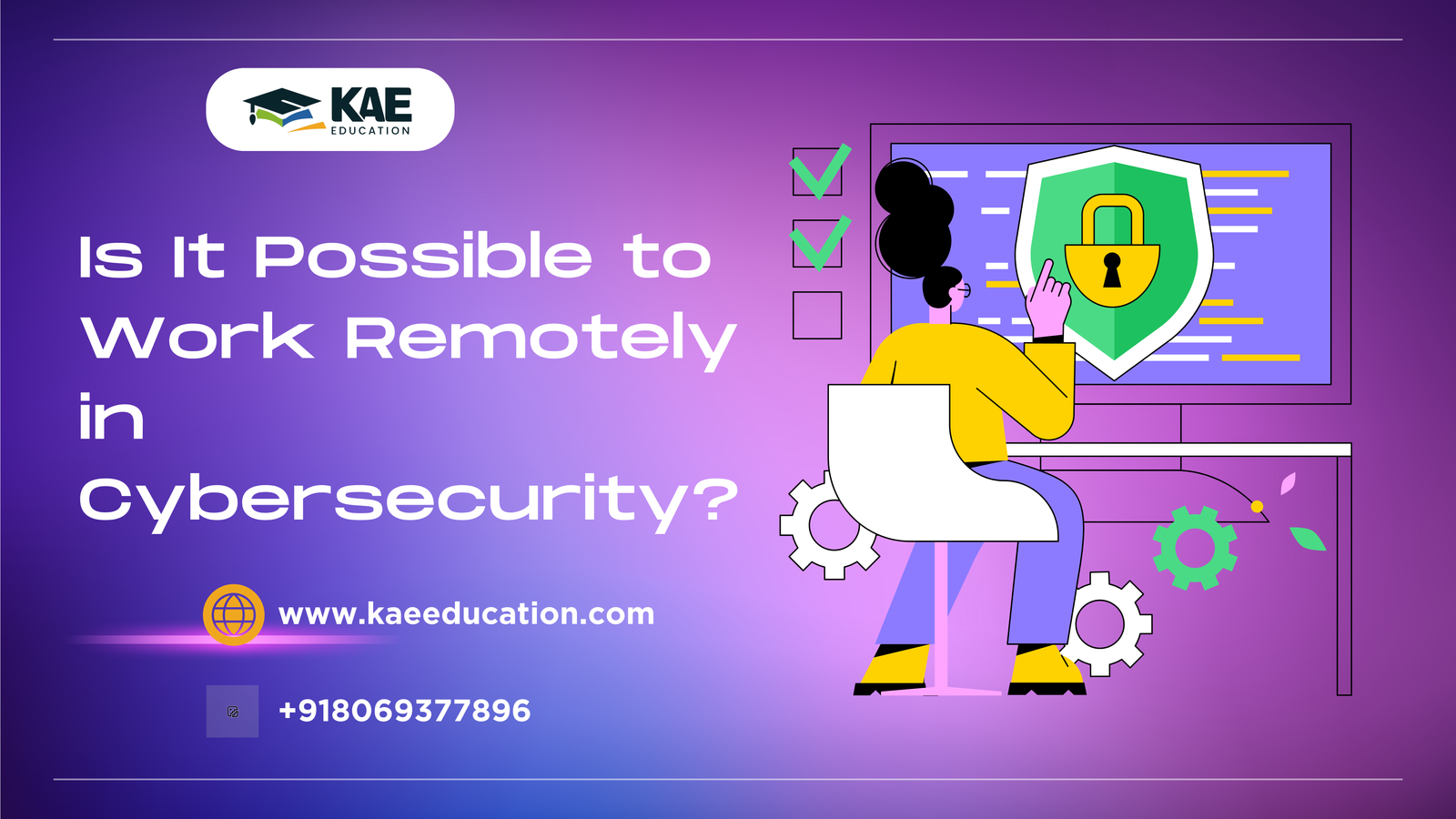Is It Possible to Work Remotely in Cybersecurity?
As Businesses and organizations increasingly rely on digital solutions, Cybersecurity has become more critical than ever. With this rise in digital infrastructure, there’s an increasing demand for Cybersecurity professionals who can work remotely, protecting data and systems from cyber threats no matter where they are located. But is it truly possible to build a successful career in Cyber security while working remotely? The short answer is yes. Many cybersecurity roles not only allow remote work but thrive on it. In this article, we’ll explore how and why remote work in Cyber security is a viable and often preferred option, along with the benefits, challenges, and opportunities it offers.
The Nature of Cyber security Work
Cyber security entails defending data, networks, and systems from online threats. Professionals in this field monitor for potential vulnerabilities, respond to threats, and implement security measures. These tasks can largely be performed remotely using specialized software and communication tools.
Cyber security professionals can work in various roles remotely, including:
(i) Security analysts:-
Monitor and detect security breaches.
(ii) Penetration testers:-
Simulate attacks to identify vulnerabilities.
(iii) Security consultants:-
Advise organizations on best practices.
(iv) Incident response specialists:-
Manage and mitigate breaches.
(v) Cloud security experts:-
Ensure the security of cloud-based infrastructures.
Benefits of Remote Work in Cyber security
(1) Flexibility:-
Remote Cybersecurity roles provide flexibility, allowing professionals to manage their time and work from any location. A better work-life balance may result from this.
(2) Global Opportunities:-
Working remotely allows professionals to access jobs from around the world, providing opportunities to work with companies in different regions, which may pay higher salaries or offer more challenging projects.
(3) Increased Demand:-
The shift to remote work during and after the pandemic has increased demand for Cyber security professionals who can secure remote infrastructures, making this an ideal time to enter the field.
(iv) Cost Savings:-
Remote work eliminates the need for commuting and expensive office setups, allowing cyber security professionals to work from the comfort of their homes or co-working spaces.

Challenges of Remote Work in Cyber security
While there are many benefits, remote work in Cyber security also has its challenges:
(i) Security Concerns:-
When working remotely, Cyber security professionals must ensure that their own systems are secure. Using strong encryption, virtual private networks (VPNs), and multifactor authentication is essential.
(ii) Communication Barriers:-
Remote work can sometimes hinder communication between teams, especially in high-pressure scenarios like security breaches. Clear and prompt communication is key in Cyber security.
(iii) Collaboration Tools:- Remote Cybersecurity professionals need access to secure collaboration and monitoring tools to stay connected with the rest of the team and manage incidents in real-time.
(iv) Isolation:-
Remote work can be isolating, especially for those used to office environments. It’s important to maintain communication with peers through virtual meetings, chats, and forums.
How to Build a Remote Career in Cybersecurity
(1) Get Certified:-
Certifications like CompTIA Security+, Certified Ethical Hacker (CEH), and Certified Information Systems Security Professional (CISSP) are highly valued in the Cyber security Industry and can make you a strong candidate for remote roles.
(2) Enhance Your Skills:-
Stay up to date with the latest trends in Cyber security. Master tools like Wireshark, Nmap, and Metasploit to ensure you are prepared for hands-on challenges in remote environments.
(3) Join Remote Job Platforms:-
There are many platforms specifically for remote work in Cyber security, including We Work Remotely, Remote OK, and FlexJobs, where you can find opportunities from around the world.
(4) Network with Professionals:-
Engage in Cybersecurity communities, attend virtual conferences, and participate in online forums to connect with like-minded professionals and find remote job opportunities.
Conclusion:-
Cybersecurity is a field that not only adapts well to remote work but thrives in it. The nature of the work—focused on securing digital infrastructure—means that Cyber security professionals can perform their tasks from anywhere in the world. Whether you’re looking for flexibility, global job opportunities, or the chance to work on diverse projects, a career in remote cybersecurity can be incredibly rewarding. With the right skills, certifications, and tools, you can build a successful and fulfilling remote career in Cyber security.
If you’re looking to break into the field or enhance your existing skills, KAE Education offers top-tier courses in Cybersecurity, designed to help you excel in remote roles and beyond. Explore our offerings and start your journey to becoming a Cyber security professional today!
FAQs About Remote Work in Cybersecurity
Yes, remote jobs in Cybersecurity are in high demand due to the rise of remote work environments and the increasing need to secure digital infrastructures.
Common tools include VPNs, firewalls, encryption software, penetration testing tools like Metasploit, and monitoring platforms like Splunk.
Roles like security analysts, penetration testers, incident response specialists, and cloud security experts are well-suited for remote work.
Strong knowledge of network security, threat detection, and incident response, along with certifications like CEH or CISSP, are essential.
Communication tools like Slack, Zoom, and Microsoft Teams are commonly used to stay connected with teams and clients in remote Cybersecurity roles.
Yes, remote Cybersecurity jobs offer long-term stability and growth opportunities, as many companies are transitioning to remote or hybrid models.
Yes, many Cybersecurity professionals freelance and offer services like vulnerability assessments, penetration testing, and consulting to a variety of clients.


I do not even know how I ended up here but I thought this post was great I dont know who you are but definitely youre going to a famous blogger if you arent already Cheers